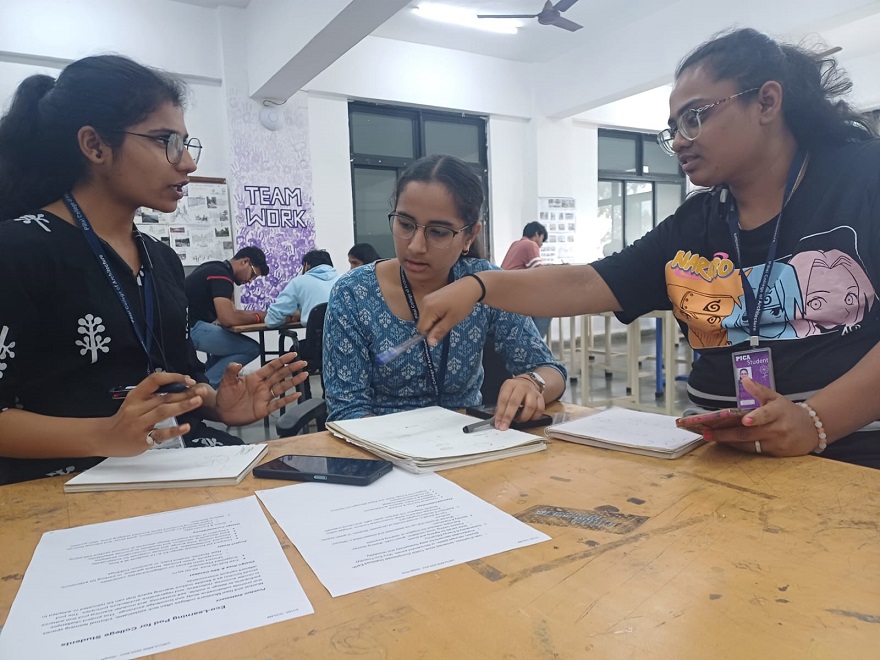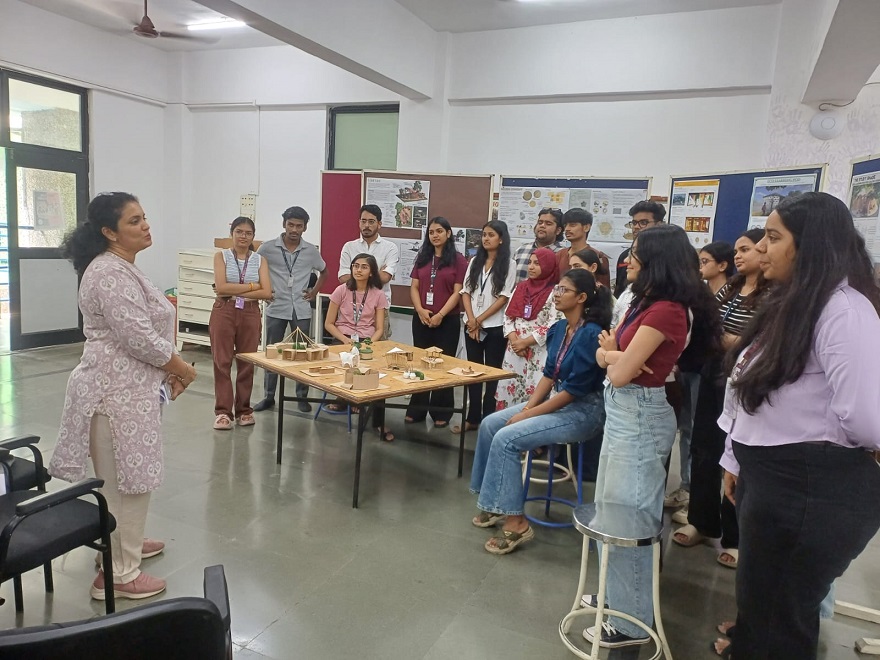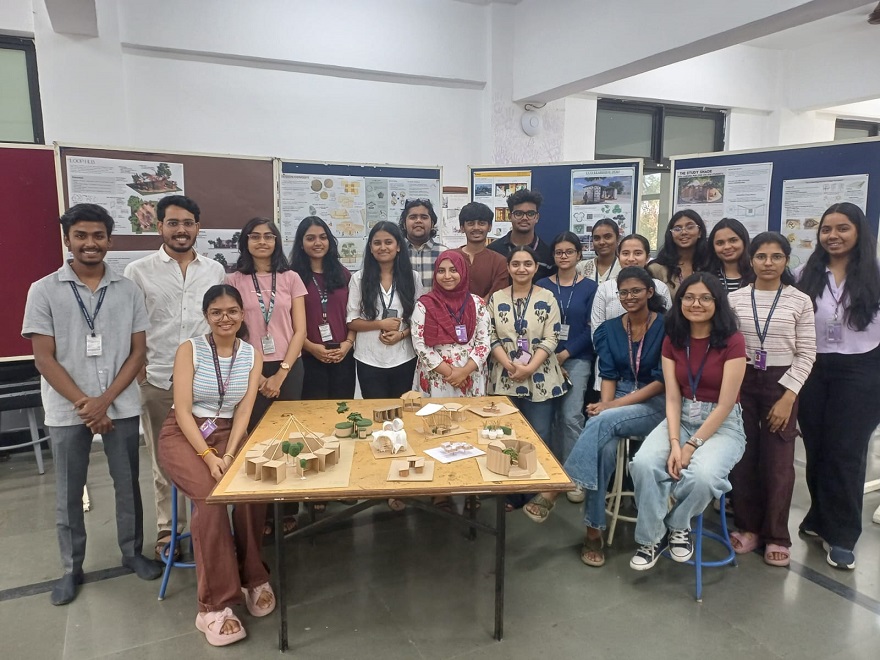| Subject | Report on the CIRCULARIS 2025 Design Competition |
| Date | 4th March, 2025 |
| Time | 10:30 a.m. |
| Venue | Third-Year Studio, Pillai College of Architecture |
The CIRCULARIS 2025 Design Competition, hosted for third-year architecture students, took place at Pillai College of Architecture on 4th March 2025. The competition aimed to challenge students to create an Eco-Learning Pod for College Students, focusing on sustainability, circular economy principles, and modular design. This competition provided students an opportunity to showcase their design talents while addressing real-world challenges in sustainable architecture.
The core problem addressed by CIRCULARIS 2025 was the lack of sustainable, informal learning spaces on Mumbai and Navi Mumbai’s college campuses. Students were tasked with designing a mobile, self-sustaining, and modular learning pod that aligns with circular economy principles. The pod was to serve as a flexible outdoor learning space, adaptable to different campus environments.
Key Design Goals:
- Compact and functional space for 8-12 students.
- Use of upcycled, biodegradable, and modular materials.
- Integration of passive cooling, solar energy, and water conservation strategies
- Design to be easily dismantled, relocated, and reused.
- Biophilic elements to enhance student well-being.
Design Considerations:
- Flexible seating arrangements for various learning activities.
- Incorporation of eco-friendly materials such as bamboo, reclaimed wood, and recycled plastic
- Sustainability features like solar panels, rainwater collection, and passive cooling.
- Modular structure for easy relocation across campus spaces.
Judging Panel:
The competition was evaluated by a distinguished panel of judges, including:
- Prof. Dr. Divya Padmanabhan, Head of the Mechanical Department, Pillai College of Engineering.
- Prof. Dr. Padmanabhan brought in-depth expertise in sustainable systems, energy efficiency, and mechanical design to assess the projects.
Key Highlights of the Event:
- Student Participation: Third-year architecture students presented their designs, showcasing innovative solutions for sustainable learning spaces.
- Judging Criteria: Projects were judged based on functionality, sustainability, material selection, and adaptability.
- Innovative Designs: Students used circular economy principles, incorporating modular and recyclable materials to create energy-efficient and sustainable learning pods.
- Presentation: Students presented their design concepts through site plans, floor plans, sections, and 3D visualizations, demonstrating their problem-solving skills.
The competition provided an excellent platform for students to apply sustainable practices and explore innovative solutions in architecture.
Students showcased designs that could be relocated and adapted to various campus spaces, enhancing functionality and mobility.
The event encouraged students to create designs that address current challenges in education, encouraging the use of upcycled materials and solar energy to enhance campus sustainability.
The CIRCULARIS 2025 Competition was a resounding success, showcasing the creative and sustainable design capabilities of the third-year architecture students. The event not only highlighted their architectural skills but also helped bridge the gap between design and sustainability in practical, real-world applications. It served as a valuable learning experience for both students and faculty alike, furthering the goal of fostering sustainability in architectural education and practice.





